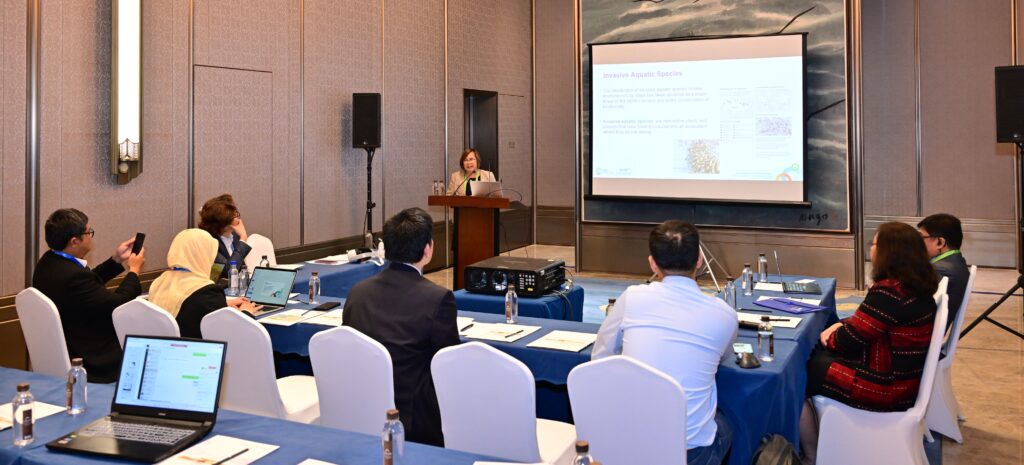ST 1.8 – Biofouling Management in the East Asian Seas (EAS) Region

Participants learned about the numerous pitfalls of accidentally introducing invasive marine and terrestrial species at the EAS Congress session on biofouling. (PRF)
The introduction and establishment of Invasive Aquatic Species (IAS) is considered one of the threats to the biodiversity of the world’s freshwater, coastal and marine ecosystems.
The global economic impacts of IAS, including disruption to the shipping industry, fisheries, damage to coastal industry and infrastructure, tourism industry and marine ecosystem services, have been estimated at several hundred million dollars per year (IMO).
The main vectors of the unintentional transfer of non-indigenous species are ships’ ballast water, the biofouling of mobile marine structures and aquaculture practices.
This session entitled ‘Biofouling Management in the East Asian Seas (EAS) Region’ was staged on 6 November and was convened by the Partnerships in Environmental Management for the Seas of East Asia (PEMSEA), International Maritime Organization (IMO) and Korea Institute of Ocean Science and Technology (KIOST) as part of the regional efforts to raise awareness on the status, socio-economic impacts and regional strategy to manage biofouling and prevent invasive aquatic species in the East Asian Seas region.
The session concluded that the potential impacts and economic costs of invasive aquatic species and biofouling to various industries such as shipping, port and marinas, fisheries and aquaculture plots are recognized as major threats to the East Asian Seas region and to the conservation of biodiversity in general.
Thus, the IMO technical cooperation program and the publication of technical guides on IAS and BM were facilitated to accelerate the development of biofouling policies and programs in targeted countries.
The session also highlighted how the Regional Strategy on Biofouling Management in the EAS Region is important in implementing a harmonized approach for biofouling management at the regional level.
Lastly, it was agreed upon that implementing biofouling management policies and programs will contribute to the overall reduction of greenhouse gas emissions while promoting sustainable ocean industries.
The session recommended that IMO be requested to extend the technical cooperation program to assist countries in the development of baseline assessments, economic impacts towards the establishment of national strategies and action plans for biofouling management.
Another recommendation was the promotion of sectoral engagement in developing and implementing biofouling policies and programs in countries.
Lastly, it was agreed on that there was a need to promote sustained efforts in sharing information, research, innovations and technology on biofouling management in the region. This session is in line with Action 5 of the Xiamen Ministerial Declaration by applying ecosystem-based reduction measures to contribute to the synergistic implementation of the goals and objectives of global instruments and initiatives, particularly in protecting native and endemic biodiversity against invasive species.
